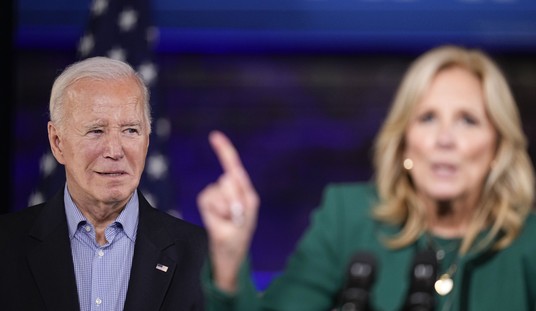Democrats held firm today to their demand of a rapid middle-class tax cut extension, posturing on deficit reduction and trying to twist Republican arms as $492 billion in defense cuts loom on the horizon.
Sen. Jon Kyl (R-Ariz.), one of the members of the super committee that failed to reach a deficit-reduction consensus last November, thus triggering the sequestration, said the Democrats’ game is worse than Russian roulette.
“Russian roulette implies that you’ve got five chances out of six that you won’t kill yourself. Phil Gramm used to have a saying around here: ‘Never take a hostage you’re not willing to shoot,'” Kyl told reporters while flanked by other Senate GOP leaders today. “But the Democrats, apparently, are willing to take hostage the American economy, our defense preparedness, and literally the lives of families and businesses in this country just in order to raise taxes on 940,000 businesses in this country. They are apparently ready to shoot the hostage.”
Republicans have protested that President Obama is ignoring the potentially catastrophic cuts — reductions that would lead to the smallest ground force since 1940, a fleet of fewer than 230 ships (the smallest since 1915), and the smallest tactical-fighter force in the history of the Air Force, according to the House Armed Services Committee.
But the message of Democrats, almost giddy over their bargaining chip, is clear: If you want some semblance of a strong national defense, tax the wealthy.
While Obama was on the campaign trail in the Lone Star State today, former Vice President Dick Cheney was on Capitol Hill to counsel Republicans on how to avoid sequestration.
A former secretary of Defense, Cheney reportedly warned House and Senate lawmakers that defense money needs to flow in “predictable ways” or else the U.S. would be left vulnerable in the face of encroaching threats such as Iran.
Senate Majority Leader Harry Reid (D-Nev.) knocked Cheney’s visit as a plug for his old defense contractor days.
“Halliburton did extremely well during his time as vice president, and I assume there’s going to be some concern about Halliburton again in this conversation they’re going have today,” Reid quipped to reporters following a policy luncheon.
He also chastised reporters for concentrating on the defense end of automatic cuts triggered by the failure of the super committee.
“You always fail to mention that there’s big cuts there for domestic programs, also. So what we’ve said with that legislation — it’s going to be hard, but we need to find $1.2 trillion to relieve the country from the burden of this debt. And this will be a long — a big step in that direction,” Reid said.
As Reid urged that “the 2 percent should pay a little more,” though, Kyl countered that the tax increase would hurt beyond defense.
Kyl cited a May report from the nonpartisan Congressional Budget Office that predicted the economy will contract at a rate of 1.3 percent annual rate for the first six months of 2013 — a “mild recession” with just one half of one percent GDP growth. “Now, we’re hurting today at just under 2 percent,” he said.
“In contrast, if we don’t allow this big tax increase, if we continue the current tax policies that we’ve had for the last decade, CBO projects that the economy will grow by 4.4 percent,” Kyl continued. “Think about the difference. Republicans in effect are saying let’s have 4.4 percent growth, Democrats are saying we’ll be satisfied with the recession and one half of 1 percent.”
“The CBO estimated earlier this year that under the Democrat proposal, joblessness will rise from its current 8.2 percent to 9.2 percent,” he added. “All of this plus incredible damage to U.S. defense, just so they can say they increased taxes on 940,000 businesses.”
Obama has urged Congress to pass the middle-class tax cuts immediately, then come back to the rest of the tax-cut extensions — which expire at the end of the year — another time. He has made clear, though, that he won’t support tax-cut extensions for the upper-income brackets, making even Democrats who had supported more generous income ceilings abandon their earlier compromise efforts and come to Obama’s side.
The debate kicked off the week at a fever pitch after Sen. Patty Murray (D-Wash.), co-chair of the super committee, said “something is going to have to change” if Congress wants to avoid “the so-called fiscal cliff.”
“Thankfully, I’m seeing some encouraging signs from Republicans who are sick and tired of being boxed in by the most extreme elements of their base — who don’t like being responsible for continued manufactured crises that hurt the economy and destroy our nation’s faith in its government — and who are concerned about the impact of sequestration,” Murray said.
“In the privacy of back rooms and in small gangs, Republicans are far more willing to discuss the need for revenue. And there are some Republicans passionate about national defense and willing to make some tough choices on revenue to protect the Pentagon.”
And Murray said definitively, “We are also not going to allow just the defense cuts to be replaced without addressing the domestic spending cuts that would be devastating to the middle class. ”
Sen. Pat Toomey (R-Pa.), also a member of the super committee, defended the GOP’s role on the deadlocked panel after Murray laid out what she saw as a multitude of Republican sins that led to negotiations falling flat.
Despite offering a framework that included lowering all income tax rates offset by reducing the value of deductions, a plan his colleagues “were generally willing to support,” Toomey said “unfortunately, we could progress no further because the Democrats were unwilling to retreat from their trillion-dollar tax-hike demands.”
Republican leaders wrote Obama on Friday to urge his cooperation in helping avert disastrous defense cuts, protesting an administration-proposed six-month postponement of the sequester that would knock its implementation clean past Inauguration Day but “would actually exacerbate the cut’s impact since agencies would be forced to absorb the same cut in the three remaining months of the fiscal year rather than over nine months.”
“Even though the Administration has yet to put forward a plan to address this issue, the House of Representatives took responsible action in May by passing legislation that would replace the 2013 sequester with other common-sense spending reductions and reforms,” wrote House Speaker John Boehner (R-Ohio), Senate Minority Leader Mitch McConnell (R-Ky.), House Majority Leader Eric Cantor (R-Va.), and Senate Minority Whip Kyl.
“A group of Senate Republicans has introduced a bill to replace the 2013 sequester with savings attributed to extending the current federal pay freeze for 18 months and reducing the federal workforce through attrition. Your Administration has not commented on the Senate bill and issued a statement saying that your senior advisors would recommend that you veto the House proposal, citing in part your desire for economically damaging tax increases.”
The House is expected to consider this week the Sequestration Transparency Act of 2012, sponsored by the Republican co-chair of the super committee, Republican Conference Chairman Jeb Hensarling (R-Texas). It would require Obama to detail within 30 days of passage how he plans to handle the deep cuts.
Defense Department spokesman George Little was asked at today’s briefing if the Pentagon was able to plan for the sequester of FY 2013 funds.
“It’s a very fair question. We are, obviously, assessing the potential impacts of sequestration,” Little said. “But, clearly, we do need to take a look at contracts and take that into account, should sequestration go into effect.”
A new report issued today, commissioned by the Aerospace Industries Association, warned that the sequestration could whack more than 2 million jobs and add 1.5 percent to the unemployment rate, along with stripping $215 billion from the nation’s GDP.
“The results are bleak but clear-cut,” said Stephen S. Fuller of George Mason University, who conducted the study. This would include the loss of 325,693 Defense Department jobs, including 48,147 civilian DoD employees, 282,426 jobs lost at defense contractors, and 482,240 jobs lost that are dependent on payroll spending of the laid-off defense workers.
“Democratic leaders like our colleague from Washington state are apparently ready to stand by and allow truly draconian across-the-board defense cuts, even though the president’s own secretary of Defense has said these cuts would ‘hollow out’ our military and be ‘catastrophic’ to our national security,” Sen. John Cornyn (R-Texas) said on the Senate floor yesterday.
“It simply amazes and discourages me that some people are willing to play chicken with our economy and our national security in such a cavalier, calculated sort of way.”









Join the conversation as a VIP Member